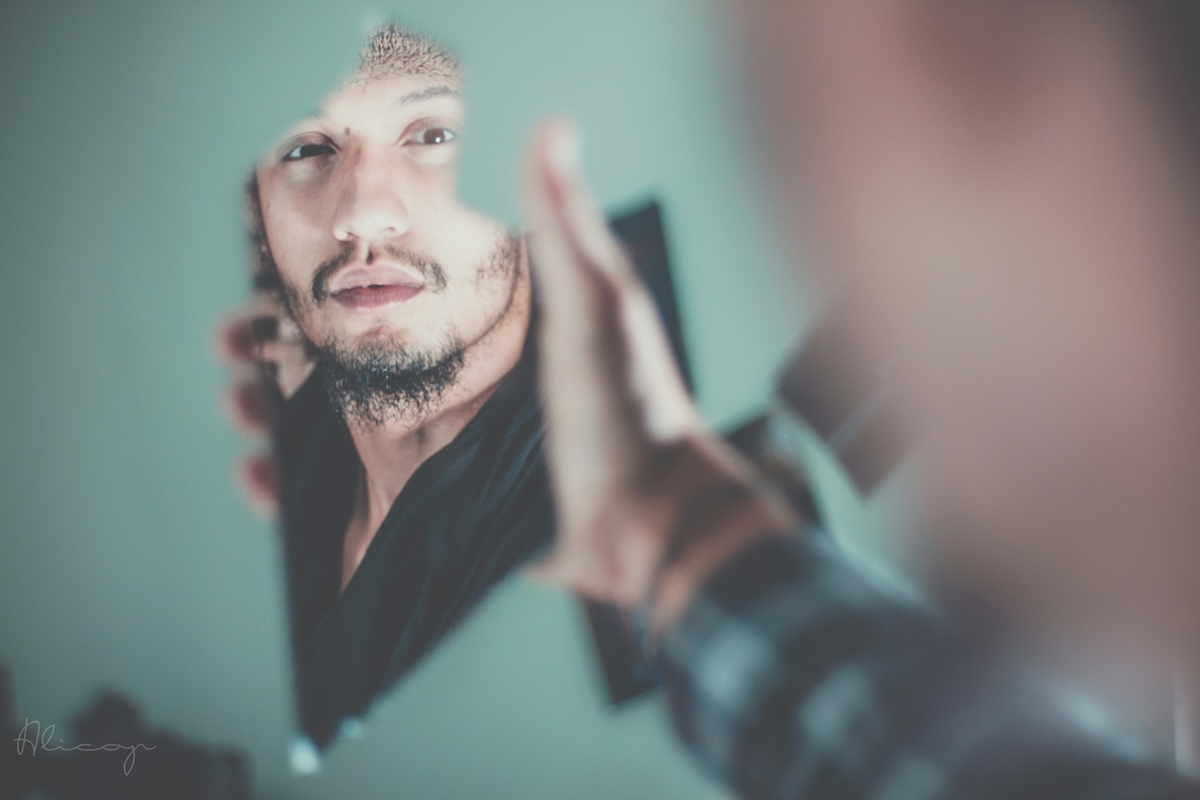
If you had a rough night of sleep or day of work, you might want to look in the mirror, get your grooming routine over with, and get on with life.
Then you look closer and notice dark circles under the eyes. If the lighting is fine, the eyes likely aren’t playing tricks on you. Dark circles under the eyes are a common bugaboo — right up there with puffy bags in the same location. The two issues are often used interchangeably. However, dark circles under the eyes are different from under-eye bags. Dark circles are discoloration. Under-eye bags are the result of swelling. As a result, some causes are similar — but not all. Understanding the facts about dark circles underneath the eyes can help you find the best fix for you (so maybe you can say “goodbye” to this sight for sore eyes).

What causes dark circles under the eyes?
Before determining how to get rid of dark circles, you’ll want to know what’s triggering yours. You may have heard that dark circles under the eyes result from poor sleep — we’ll get to that. However, many other factors may be in play in addition to or instead of poor slumber. Common culprits of dark circles under the eyes include:
- Aging. As we place more birthday candles on our cakes, our skin begins to thin, including around the eyes. Blood vessels become more noticeable, leaving you with the appearance of dark circles. While aging is inevitable, you can slow the clock by adhering to a grooming routine that fits your skin type and age.
- Contact dermatitis. This skin condition flares up when someone comes in contact with something irritating or that they are allergic to. A side effect? Blood vessels are easier to see (and so are dark circles).
- Eczema. Eczema, or atopic dermatitis, is a skin condition that causes dry, irritated, and itchy skin. Like contact dermatitis, eczema can make blood vessels more visible.
- Genetics. You may have inherited dark circles — some families are more prone to them. This one is something you can’t control.
- Rubbing or itching the eyes. Rubbing or itching can irritate the area of the skin and cause blood vessels to become more visible and even break. (People with contact or atopic dermatitis may also experience itchiness, so they may be more likely to rub or scratch the eyes, which only increases their chances of having dark circles under the eyes).
- Dehydration. Remember, your skin is an organ. Like the other organs in your body, the skin needs water to function. Discoloration can occur without proper fluid intake.
- Poor sleep. The rumors are true. Poor sleep can trigger under-eye dark circles. Without the right amount of sleep, the skin can become thinner, duller, and paler, once again causing blood vessels to become more visible (noticing a pattern here?). The eyelids can also swell, casting a shadow on the undereye area.
- Sun exposure. Dark circles are a form of discoloration. You may think of “red” as the discoloration caused by too much skin because of burns. However, overexposure to the sun can lead to post-inflammatory pigmentation or an excess of melanin production, which can result in dark circles.
- Anemia. Anemia occurs when you have a low red blood cell count. It can cause skin to become pale and lead to dark under-eye circles, especially if left untreated.
- Eye strain. Your eyes may be getting too much of a workout. Looking at a TV, smartphone, or computer for too long can cause the blood vessels to become large and — you guessed it – visible.
- Lifestyle. Smoking and excess consumption of alcohol can also contribute to dark circles.
How to get rid of dark circles
Once you’ve pointed out the cause of this pesky issue, you can jump into action. There’s not much you can do about genetics, but some lifestyle tweaks might help with other reasons for dark circles.
- Get more sleep. Sleep is restorative but can be challenging. Upgrading your mattress, limiting screen time, and developing a routine can help.
- Look away from screens. Speaking of screens, they can cause eyestrain. Limiting use when possible might reduce the likelihood you wind up with dark circles. Try taking short breaks during the day and cozying up with a hard copy of a book at night.
- Put on sunscreen. Fun in the sun can still happen, but wearing sunscreen protects the skin all over — including the eye area. Be sure to re-apply every two hours you’re in the sun and after sun exposure.
- Check your kitchen. Cold compresses can reduce swelling around the eyelids. Cucumbers and teabags might also have a cooling effect.
- Treat conditions. Applying oral and topical medications to treat conditions from eczema to anemia can help keep unwanted side effects like dark circles at bay.
- Quit smoking and limit drinking. Mental health providers can help if you’re struggling to do either.
Takeaway
What causes dark circles under eyes? Several factors could be in play. Ultimately, dark circles under the eyes are a form of discoloration, often because something causes the blood vessels to become more visible. Sleep is the most commonly discussed one, and lacking Zzzs can trigger dark circles. Other potential causes include genetics, aging, sun overexposure, smoking, too much alcohol, and eyestrain from spending too much time looking at a device like your phone. You can’t control genetics and aging, but you can reduce your risk of developing dark circles by getting around seven hours of sleep per night, putting on sunscreen, quitting smoking (if applicable), and looking away from the phone. With some of these tips, like sleeping and a digital detox, you might even notice a boost in your mental health, too. If you feel like you’ve tried everything, a dermatologist can help.





